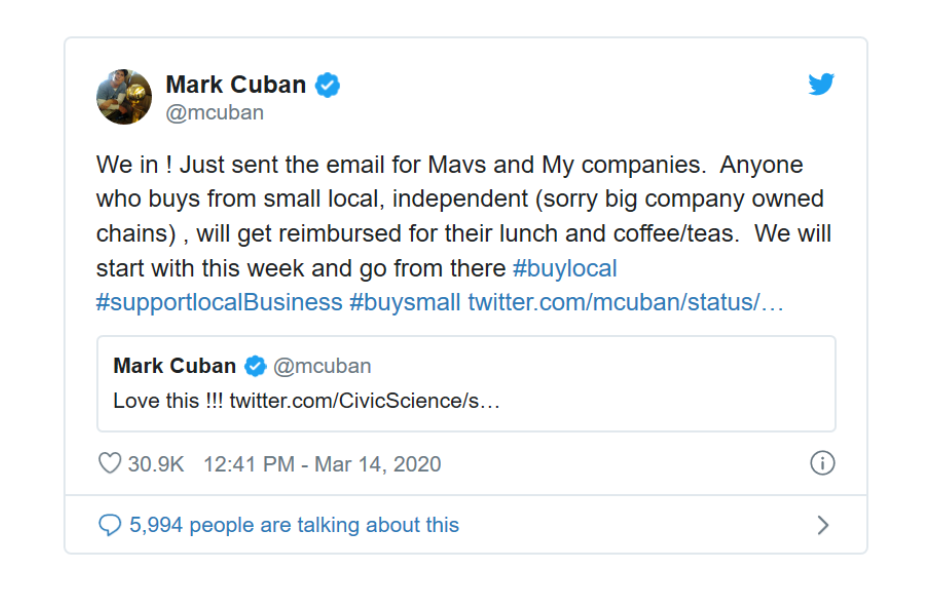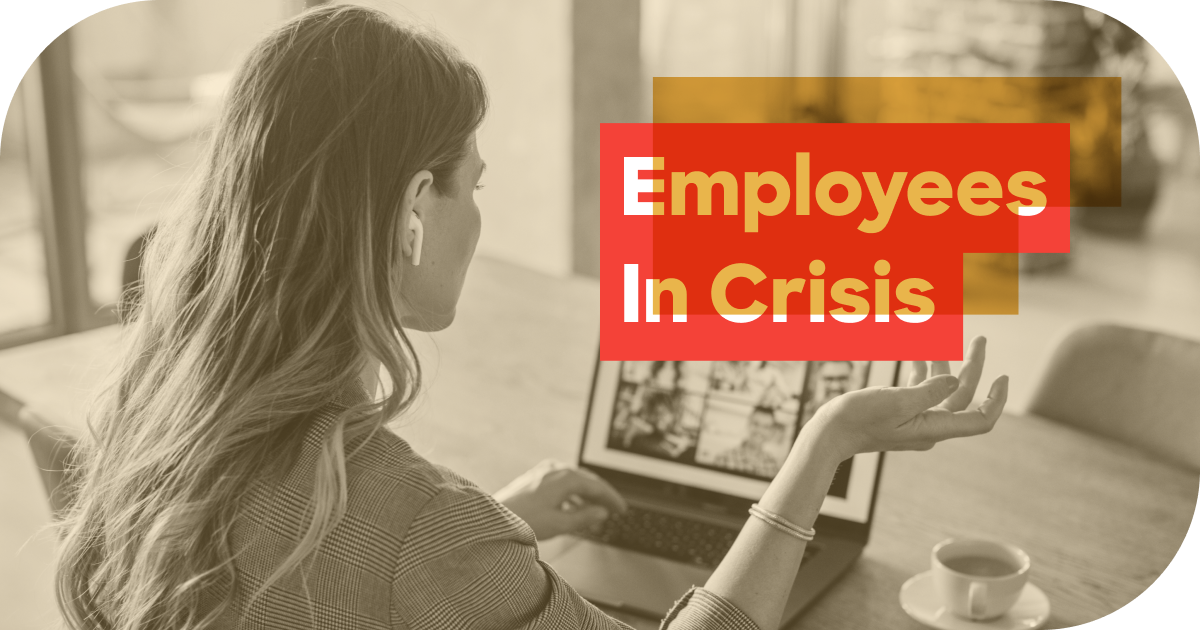As coronavirus continues to plague the nation, the strength, durability, and spirit of each and every professional community continues to be tested.
As a response, companies large and small have stepped up for their employees. While many companies have taken simple preventative measures like sanitizing the workspace, implementing a work-from-home strategy, or updating their sick leave policy, others have found creative ways to boost morale.
No matter the method, the following examples are just some of the ways employers are demonstrating how much they care about their employees’ financial, physical, and emotional well-being—a decision that is likely to work in their favor long after the crisis subsides.
How Companies Are Caring For Employees
1. Paying hourly employees—even when they have no hours
Hourly employees, who are particularly threatened by the pandemic, are supported by many large companies. Microsoft, for instance, has set the example by promising to continue to pay them—whether or not their hours have been reduced.
Other companies that have taken the same pledge include Amazon, Apple, Google, Facebook, Salesforce, and Twitter.
2. CEOs taking a pay cut
As a response to the significant decrease in demand for airline services, CEO of Southwest Airlines Gary Kelly—who earned a base salary of $750,000 and total compensation of $8 million in 2018—hastaken a 10% pay cut, while United Airlines’ CEO and President have both agreed to forgo their base salaries until June 30, 2020.
This financial sacrifice sends a strong message about just how committed the companies’ leadership teams are to prioritizing the greater good of the organization over the individual, which inherently encourages the rest of the employees to do the same.
3. Helping employees help small businesses
In mid-March, CivicScience, a polling and consumer research company based in Pittsburgh, announced that it would reimburse its 39 employees for any coffee or lunch purchases made from small, local, independent establishments. Thanks to Twitter, Mark Cuban—serial entrepreneur, investor, and owner of the Dallas Mavericks—caught wind of this idea and, by re-tweeting it, shared it with his 7.7 million followers. Shortly thereafter, he followed suit.

How companies are responding to the coronavirus “is going to define their brand for decades,” Cuban told CNBC. “If you didn’t take care of your employees or stakeholders and put them first, you were ‘that company.’ And particularly with the Gen Z and millennial generations, that’s going to be unforgivable. So not only is it smart to take care of your employees, but it’s also good business.”
4. Cash bonuses
Full-time employees—although less at risk than hourly employees—are not immune to the financial challenges posed by the pandemic. To help alleviate some of the stress, many large companies are offering these employees cash bonuses.
Employees of Trader Joe’s started a petition demanding hazard pay at the rate of time and a half. It read, “We are exposing ourselves (and our loved ones) to COVID-19. We aren’t being paid for the extra work we’re doing or the risk we’re undertaking. We are terrified.”
Just a day after its release, the company agreed to set up a “special bonus pool” for each store, which would be split amongst employees.
As a response, the petition now reads, “Trader Joe’s is hoping that maintaining an image of compassion will excuse the company from having to tangibly act with compassion.”
5. No-layoff pledge
While several large companies are making strides to hire waves of new workers, some by the thousands (most notably InstaCart, Walmart, and Amazon), Marc Benioff, CEO of Salesforce, is suggesting something else: no layoffs.
As part of an eight-point plan to end the crisis caused by the virus, which Benioff rolled out on Twitter, he calls for all CEOs to abide by a no-layoff plan for a minimum of 90 days.
Final Thoughts
No matter your industry, taking steps to keep your employees physically safe is essential, but it’s the least you can do. At times like these, thoughtful, empathetic efforts like regular communication; financial support; and morale-boosting initiatives are what will maintain—and possibly even strengthen—the power and performance of your team.
From a business standpoint, showing your employees you care about them as people is the smart thing to do. From a human standpoint, it’s the right thing to do.


